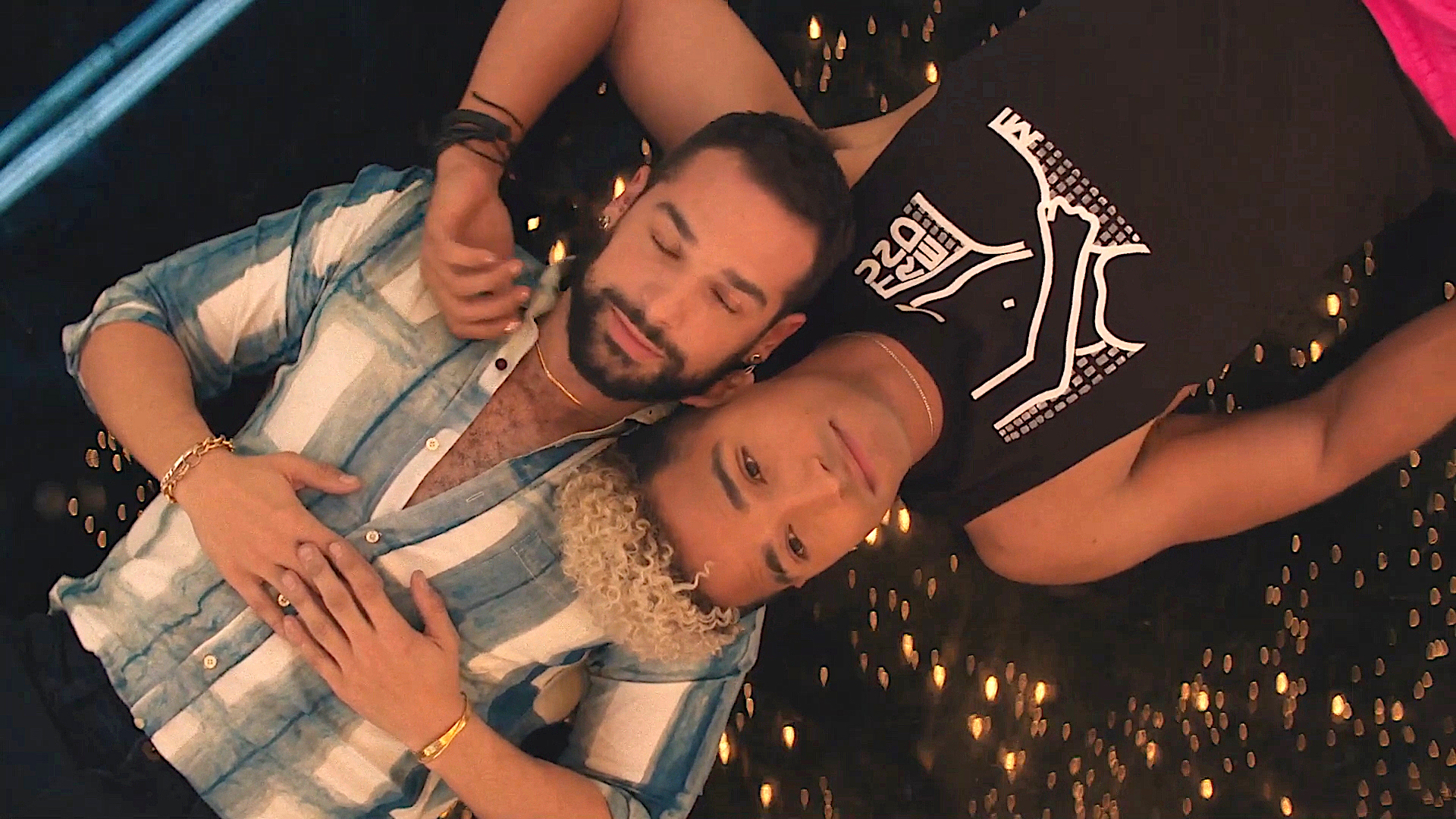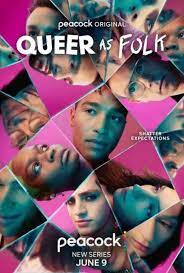IT’S ONE THING for the cast members of a popular TV series to gather one last time for a reunion—think AfterMASH, the much hyped Seinfeld and Friends reunions, and the film spin-offs of Sex and the City—but it’s another thing for a TV show to mutate over the course of twenty-plus years. Queer as Folk is unique in this respect. Created by Russell T. Davies in 1999, the show first appeared on England’s Channel 4 and was arguably the first prime-time series to dramatize the sex lives of openly gay men. On the strength of its UK success, Queer as Folk was soon repackaged for an American audience in the year 2000, and it ran on Showtime for five consecutive seasons. The characters were transplanted from Manchester, England, to Pittsburg, Pennsylvania, but the main plotlines were left intact. The series centered on a close-knit group of five gay men, one lesbian couple, and a brassy diner waitress intensely proud of her gay son Michael and a poster girl for PFLAG.
Now, seventeen years after the U.S. series ended, Queer as Folk has gotten yet another makeover. At the helm this time around is Stephen Dunn, writer-director of 2016’s Closet Monster. The setting is pushed south and west, this time to New Orleans. But why re-reimagine Queer as Folk in 2022? It’s certainly no clone of its predecessors. Dunn has deliberately dumped the white, cisgender men who dominated the earlier version and opted for a more racially diverse cast. In the original, a fifteen-year-old character named Justin lost his virginity to a 29-year-old Brian, which raised more than a few English eyebrows. That age discrepancy was softened for American viewers, and Justin’s age was raised to seventeen, still unsettling to some. Dunn has done away with all of that—a wise and timely move given that conservatives today are using a scare tactic like “drag queen story hour” and once again accusing gay people of “grooming” America’s youth. Some things never change.
What has changed is a cast more reflective of today’s society: an excellent Devin Way plays Brodie Beaumont, a medical school dropout and the baby-daddy to an interracial couple, the AFAB (or assigned-female-at-birth) character named Ruthie and her heavily pregnant partner Shar. Shortly after a breakup from Noah (a wooden Johnny Sibilly), Brodie meets Marvin, a disabled man who brags that, despite being in a wheelchair, everything below his waist is in working order. There’s also Mingus (Fin Argus), who prefers they/them pronouns and, as an aspiring drag performer, makes their debut on stage as “Chickee Filet.” Political self-consciousness sometimes dampens even the steamiest of sex scenes: The pilot opens with a white man bottoming for Noah, who is Black, while moaning: “Let me pay reparations!” Elsewhere in the series, Ruthie is told: “You can be trans and toxic. It’s called intersectionality, bitch!” Kids these days.

Juliette Lewis is a superb actress who plays Judy, a working single mom and Mingus’ fiercest supporter. This mother and son share eyeliner. Lewis made her debut, at the age of eighteen, in Martin Scorsese’s Cape Fear (1991) and has been making even the most mediocre material marvelous ever since. The other maternal powerhouse is played by Kim Cattrall (of Sex and the City fame) as Brodie’s mother Brenda. At times the political self-consciousness feels forced and scripted by an intern at msnbc. Judy picks Mingus up at school and smilingly chides him: “You didn’t have to pull the queer card again? Wow, a D plus that you earned all on your own without weaponizing your marginalization.” Who talks like this?
While Americans have grown more comfortable with LGBT storylines, they’ve also grown complacent when it comes to the frequency of mass shootings, particularly those targeted at minorities. Stephen Dunn is no stranger to trauma. His Closet Monster is an oedipal psychodrama in which a gay teenager pushes his homophobic father in a closet and runs off to a queer costume party. The pilot, which Dunn titled “Babylon” (the same name of the club in the earlier series), comes with this warning: “Queer as Folk is a fictional series about the vibrant LGBT community in New Orleans rebuilding after a devastating tragedy. Some viewers may find elements of the first episode distressing as it depicts the aftermath of a shooting,” followed by a “our hearts go out to all of those affected by these senseless tragedies.” The shooting is an obvious reference to the Pulse nightclub shooting of 2016. As a jumping-off point, this feels somewhat exploitative. We are given the stock figure of a man dressed all in black, shot from behind, but his motive is never unpacked, which turns a real-life tragedy into something of a hollow plot device. To illustrate that life always goes on in the face of death and destruction, Char gives birth to twins on the same night of the shooting and, improbably, in the very same hospital where the gunshot victims are being treated.
You might call the updated cast of Queer as Folk 3.0 a collection of “trauma queens,” not a term I use glibly but one used by the snarky Marvin, who sighs “I’m hate-crime’d out for the week.” After the massacre, the sound of firecrackers sends the survivors scrambling to their knees. For all its wokeness, it’s a good thing that Dunn has dusted off Queer as Folk during some very dark times. It’s about one’s chosen family, human connection, and the power of individuals and communities to rebuild after unthinkable tragedy. That’s not a power possessed only by GLBT people, but they have had to develop these skills more than other groups.
Colin Carman is an assistant professor of English at Colorado Mesa University and author of The Radical Ecology of the Shelleys. His forthcoming book is titled Jane Austen’s Road to Happiness.





